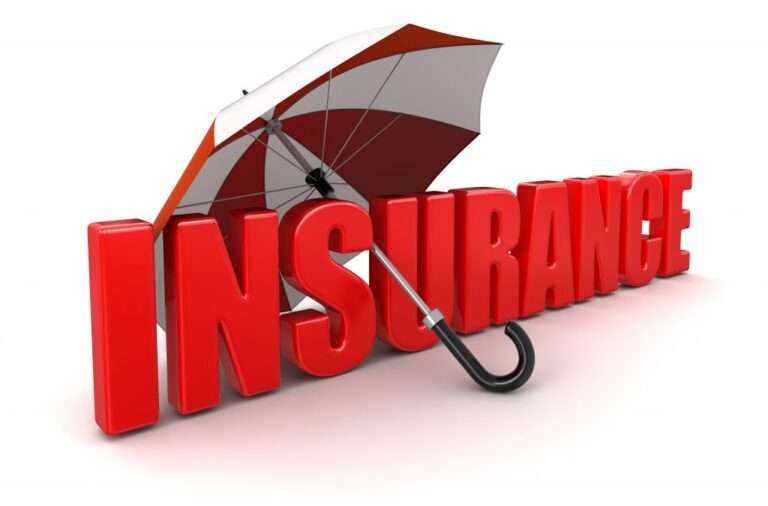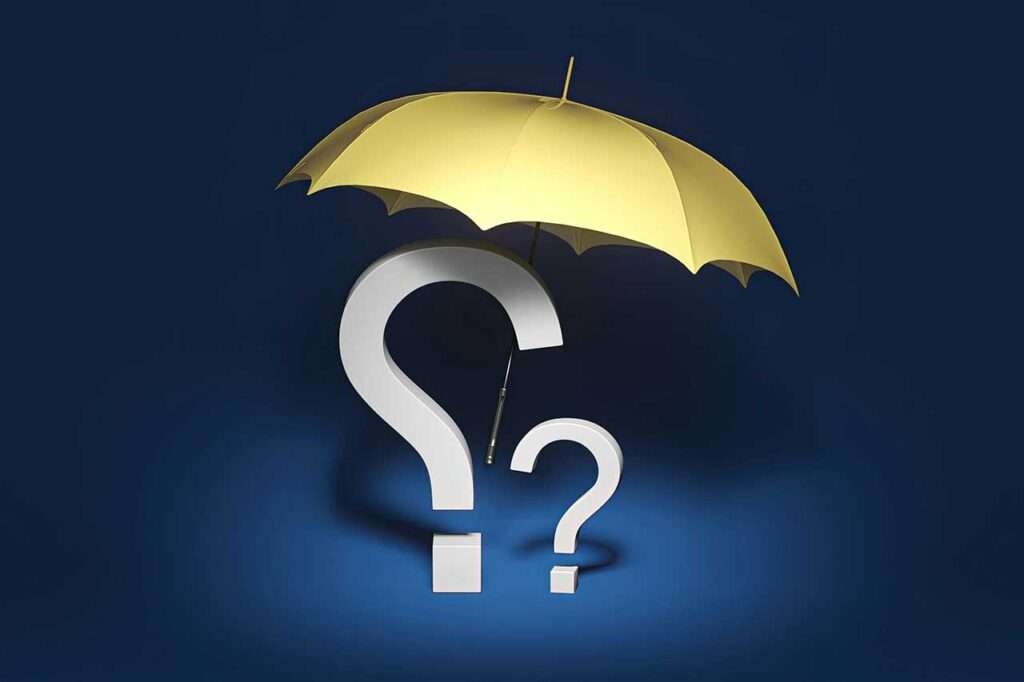
| Heading | Subheadings |
|---|
| H1: What is Umbrella Liability Insurance? | Overview of umbrella insurance and its core purpose. |
| H2: Why is Umbrella Liability Insurance Important? | Explanation of its role in providing extra coverage beyond standard policies. |
| H2: Key Features of Umbrella Liability Insurance | Coverage highlights, such as extended limits and legal defense costs. |
| H3: Who Needs Umbrella Liability Insurance? | Individuals, families, and businesses that benefit from the extra layer of protection. |
| H3: Common Scenarios Where Umbrella Insurance Helps | Examples like lawsuits, property damage, and accidents. |
| H2: How Does Umbrella Liability Insurance Work? | Explanation of coverage mechanism, including underlying policy requirements. |
| H3: Coordination with Primary Policies | How it interacts with homeowner, auto, and business insurance. |
| H3: Limits and Coverage Amounts | Typical coverage ranges and how to choose appropriate limits. |
| H2: What Does Umbrella Liability Insurance Cover? | Overview of covered scenarios such as personal liability, libel, and slander. |
| H3: What It Doesn’t Cover | Exclusions like intentional harm and contractual obligations. |
| H2: Benefits of Umbrella Liability Insurance | Financial security, peace of mind, and additional legal protections. |
| H2: Cost of Umbrella Liability Insurance | Pricing factors, including risk profile, policy size, and coverage type. |
| H3: Average Cost Examples | Typical cost breakdown for individuals and businesses. |
| H3: Ways to Reduce Premiums | Tips like bundling policies and maintaining good credit. |
| H2: How to Choose the Right Umbrella Liability Insurance? | Steps to evaluate and compare insurance providers. |
| H3: Factors to Consider | Important aspects like reputation, customer reviews, and claim process. |
| H3: Common Mistakes to Avoid | Errors such as underestimating coverage needs. |
| H2: Pros and Cons of Umbrella Liability Insurance | Balanced evaluation of its advantages and limitations. |
| H3: Advantages | Discussion on affordability, flexibility, and extensive coverage. |
| H3: Drawbacks | Potential downsides, such as exclusions and extra premiums. |
| H2: Frequently Asked Questions (FAQs) | Answers to common queries regarding umbrella liability insurance. |
| H3: Is Umbrella Insurance Necessary for Everyone? | Explanation of suitability based on individual needs. |
| H3: Can It Be Used Internationally? | Coverage considerations for international incidents. |
H3: Does It Cover Business Activities? | Explanation of personal versus commercial umbrella policies. |
H1: Conclusion | Recap of key points and final thoughts on umbrella liability insurance. |
What is Umbrella Liability Insurance?
Umbrella liability insurance acts as an additional safety net, providing coverage that extends beyond the limits of standard insurance policies like home, auto, or business insurance. It offers protection against substantial claims or lawsuits, ensuring your assets and future income remain secure. This type of policy is especially valuable for covering unforeseen incidents where your basic policies might fall short.
Why is Umbrella Liability Insurance Important?
Umbrella liability insurance protects your financial well-being. Standard policies, whether home or car, have limits. In case of a significant accident, lawsuit, or liability claim that exceeds those limits, you will be required to pay the rest of the costs on your own. Umbrella insurance provides for this gap.
For example, if you’re found liable for a car accident and the damages exceed your auto policy’s limit of $500,000, an umbrella policy can cover the excess. Without it, you’d have to pay out of pocket, potentially draining your savings or forcing you to sell assets. This policy ensures peace of mind by protecting against worst-case scenarios.
Key Features of Umbrella Liability Insurance
High coverage limits: Policies typically begin at $1 million, and it can go up to $10 million or more.
Covers Legal Expenses: This includes attorney fees, court charges, and any other legal charges incurred while being sued.
It fills in gaps in other policies as a secondary layer of protection on primary insurance maxing out.
It covers a range of liabilities: protects against claims like bodily injury, property damage, libel, slander, and false arrest.
Whether you’re a homeowner, a business owner, or someone who frequently travels, umbrella insurance offers flexible options tailored to your specific needs.
Who Needs Umbrella Liability Insurance?
While umbrella liability insurance isn’t mandatory, it’s a smart investment for certain groups:
1. Homeowners:
If someone is injured on your property and seeks damages from you, an umbrella policy can cover excess medical bills and legal expenses.
4.High-Net-Worth Individuals:
People with largeassetbases or high incomes are more likely to be targeted for lawsuits. Umbrella insurance protects their wealth.
3. Business Owners:
Business operations can cause accidents and liabilities that surpass basic coverage. The umbrella policy ensures that business will stay protected.
4. Families with Teenage Drivers:
Teen drivers are at risk of accidents. If they cause a grave accident, umbrella insurance will cover extra protection against lawsuits or other damages.
5. Landlords:
If you rent out properties, you’re at risk for tenant-related lawsuits. Umbrella insurance covers legal claims beyond standard property insurance.
Common Scenarios Where Umbrella Insurance Helps
Umbrella liability insurance can be a lifesaver in situations where costs spiral out of control. Let’s look at some real-world scenarios:
Car Accidents:
Suppose you’re at fault for a severe accident, and the other party requires long-term medical care costing $2 million. If your auto insurance covers $500,000, the umbrella policy takes care of the rest.- Injuries on Your Property:
Think about a guest tripping on your stairs, suffering a spinal injury, and suing for $1.5 million. Your homeowner’s insurance may well pay the first $300,000, but your umbrella insurance would cover the excess of $1.2 million. - Libel or Slander Lawsuits:
Today, a single social media post can quickly escalate into a defamation lawsuit. An umbrella policy not only shields your finances but also provides legal protection. - Dog Bites:
When your pet bites someone, and medical and legal costexceeds your homeowner‘s insurance, umbrella coverage willpickup the rest of the tab.
How Does Umbrella Liability Insurance Work?

It is a form of liability insurance that serves as a supplemental layer, only activated if your primary policies are depleted to the limits of the coverages you purchased. Here’s how it works.
Coordination with Primary Policies
Umbrella policies demand that you have standard insurance-you could have auto insurance or homeowner insurance with minimum dollar amounts. When an occurrence happens, your primary policy pays first. After that limit is drained, the umbrella policy steps in to pay for the remainder.
For example:
- Auto insurance limit: $500,000
- Claim amount: $1.2 million
- Umbrella policy covers: $700,000
Limits and Coverage Amounts
Most umbrella policies start at $1 million, but the limits can be increased to meet your needs. For people with big assets or a stronger chance of liability, higher coverage is ideal.
What Does Umbrella Liability Insurance Cover?
Umbrella insurance is versatile, covering many liability scenarios:
- Bodily Injury Liability: Medical expenses or lawsuits from accidents causing injury to others.
- Property Damage Liability: Damage to someone else’s property, like a vehicle or building.
- Personal Liability: Covers libel, slander, defamation, and invasion of privacy claims.
- Legal Defense Costs: Pays for attorney fees, court expenses, and settlements.
What It Doesn’t Cover
Umbrella insurance has its exclusions, including:
- Intentional Harm: Deliberate acts of damage or injury.
- Criminal Acts: Illegal activities are not covered.
- Contractual Liabilities: Obligations agreed upon in a contract are excluded.
Benefits of Umbrella Liability Insurance

Umbrella liability insurance offers multiple advantages:
- Financial Security: Protects your savings and future earnings.
- Peace of Mind: Reduces stress by covering unpredictable risks.
- Broader Coverage: Includes liabilities that other policies exclude, like libel or slander.
- Cost-Effective: Provides millions in coverage for relatively low premiums.
Cost of Umbrella Liability Insurance
The cost of umbrella liability insurance is surprisingly affordable, especially considering the extensive protection it offers.
Average Cost Examples
- For individuals, the annual premium for $1 million coverage is around $150–$300.
- Businesses may pay higher rates, depending on their operations and risk levels.
Ways to Reduce Premiums
- Bundle Policies: Combine umbrella insurance with home or auto policies for discounts.
- Increase Deductibles: Raising limits on primary policies can lower umbrella premiums.
- Maintain Good Credit: A strong credit history can lead to better rates.
How to Choose the Right Umbrella Liability Insurance
Selecting the right umbrella liability insurance requires careful consideration of your unique needs and financial situation. Here’s a guide to make an informed choice:
Factors to Consider
Coverage Needs:
Assess the value of your assets and the risks you face. For instance, if you have multiple properties or a high-profile profession, you’ll need higher coverage.Reputation of the Insurer:
Research the insurance provider’s financial stability, claim settlement history, and customer reviews.Policy Compatibility:
Ensure your existing policies meet the minimum requirements for umbrella coverage. Some providers might require specific limits on auto or homeowner policies.Additional Coverage Options:
Look for optional riders that address specific risks, such as international liability coverage.
Common Mistakes to Avoid
- Underestimating Risks: Skipping umbrella insurance because “it won’t happen to me” could lead to significant financial losses.
- Choosing the Cheapest Policy: Low premiums might mean limited coverage or a less reliable insurer.
- Ignoring Exclusions: Always review what’s not covered, so you’re not caught off guard.
Pros and Cons of Umbrella Liability Insurance
Every financial product has its pros and cons, and umbrella liability insurance is no exception.
Advantages
- Affordable Premiums: You can get $1 million in coverage for a few hundred dollars annually.
- Extensive Coverage: Protects against claims beyond standard policy limits, including rare but costly liabilities like defamation.
- Legal Defense Costs: Covers attorney fees and legal expenses, even for frivolous lawsuits.
- Peace of Mind: You’re financially protected against the unexpected.
Drawbacks
- Not a Standalone Policy: Requires underlying insurance, which could increase overall costs.
- Exclusions Apply: Doesn’t cover intentional harm, criminal acts, or certain business liabilities.
- Complex Claims Process: May involve coordination between multiple policies, delaying resolution.
Frequently Asked Questions (FAQs)
1. Is Umbrella Insurance Necessary for Everyone?
Not everyone needs umbrella insurance. It’s most beneficial for individuals with significant assets, high liability risks, or professions that increase their likelihood of lawsuits.
2. Can Umbrella Insurance Be Used Internationally?
Many policies offer worldwide coverage, but it’s essential to confirm with your insurer. Some claims, like auto accidents, may have geographic restrictions.
3. Does It Cover Business Activities?
Personal umbrella policies do not cover business-related liabilities. For businesses, commercial umbrella insurance is required.
4. How Much Umbrella Insurance Do I Need?
A good rule of thumb is to match the policy amount to your total net worth or at least $1 million for average risks. High-net-worth individuals might need higher limits.
5. Can I Add Umbrella Insurance to Any Policy?
Most insurers require specific minimum limits on your primary policies before offering umbrella insurance. Check compatibility with your existing coverage.
Conclusion
Umbrella liability insurance is an invaluable safety net for anyone looking to protect their assets and financial future. It goes beyond standard policies, covering substantial claims and offering peace of mind. Whether you’re a homeowner, business owner, or someone with substantial assets, umbrella insurance provides the extra layer of security you need to weather unforeseen liabilities.
